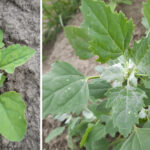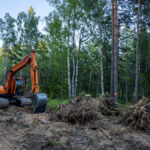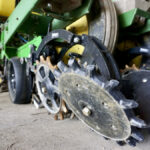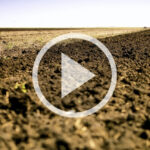
Weed of the week: Lamb’s quarters
It’s important to get ahead of this prolific, early-growing species

Grain-based foods popular in post-pandemic world
Altered purchasing behaviours and personal preferences may bring opportunities

Farmers push back against Chatham clear-cut bylaw
Municipality says council intended to prevent aggressive cutting as wider environmental policy changes are discussed

Genome mapping changes wheat breeding
New technologies help unravel the mysteries of a large, complex organism

How to plant into thick cover crops
Two farmers share their strategies for planting green

VIDEO: Improving soil health in the field
Field Talk with Kelsey Banks

What’s driving equipment and land costs?
Low interest rates and good commodity prices, while significant, are not the whole story

Planting, harvest equipment best kept separate, advisors say
Steps should be taken to prevent treated seed from contaminating harvested grain

The big brake debate
Braking standards are voluntary, but as implement size increases, brakes are increasingly important



